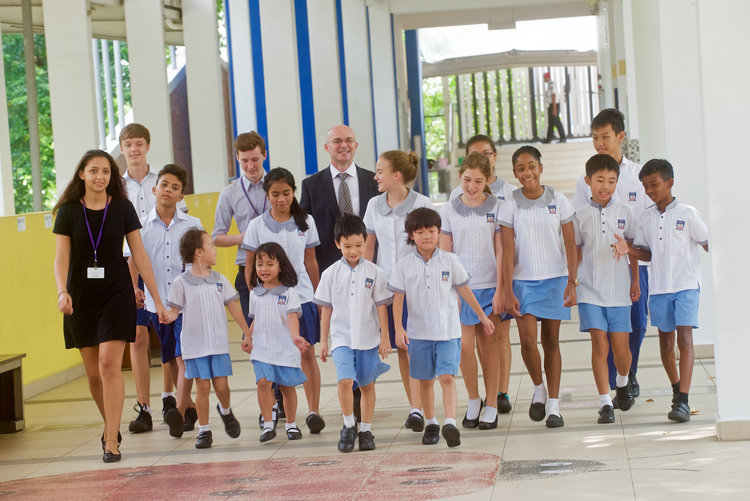
Thousands of Vietnamese students will start their educational journey in a couple of months; a journey that will be completed in terms of formal schooling in the year 2031.
It is difficult to envisage what the world will be like in 2031and where education might be heading by then. However, as educators we are faced with the unenviable task of preparing children for this uncertain future that seems to be getting increasingly more difficult to predict.
I believe that the best way to manage such change is to anticipate and prepare for it, and a high quality education is the best medium to do just that. This raises the question of ‘what is a high quality education?’
f we are truly preparing children for life in the 21st century, then we must encourage and develop skills of critical thinking and problem solving. What students know is no longer the most important measure of the quality of education.
The true measure is the ability to engage with what they do not know, and to work out a solution. In practical terms, students should be taught how to think, not what to think.
As teachers, we are continually reflecting on our practice and questioning how effective we are in the classroom; as a school Principal I am continually reflecting on how successful we are at preparing our students for their futures.
But what exactly does this entail? A recent report by the United States Department of Labour stated that ‘65% of children starting school this year will end up working in careers that do not yet exist’, which I find to be quite a staggering thought.
So, faced with this significant responsibility, how are schools tackling the momentous task of preparing our children for the world of work in 2031?
n my opinion, the key to the future of education will be the fundamental understanding that we are all different and therefore ensuring the individual is adequately catered for and the education we provide is completely student centred.
A curriculum that is individualised and therefore relevant to every childallows scope for development based on the nurturing of individual talents that are essential for enabling full potential to be realised; successful education cannot be a ‘one size fits all’.
Sir Ken Robinson uses the metaphor of flowers in a desert to describe children in school. When nurtured and cared for, provided with the correct conditions and climate, flowers thrive, blossom and flower.
However, if the climate is too harsh or the conditions unforgiving, then the flowers lie dormant as seeds, their true colours never revealed, their transformation from a seed into a plant prevented and therefore the opportunity to appreciate their beauty never realised.
Children, like plants, need to be provided with the correct conditions to flourish; they need to be placed in a climate of trust and possibility; they need to be stimulated, their talents discovered, nurtured, valued and appreciated; they need to be supported during times of difficulty to build their resilience and emotional maturity; they need their natural curiosity to be cherished and encouraged through engaging activities and a curriculum that challenges them to take risks and inspires their imagination.
Obviously, it is not easy to create and maintain such conditions. It takes skill, hard work and dedication to ensure that every child is given the opportunity to reach their full potential and become the very best they can be.
Despite the absence of a crystal ball to predict how life will be in 2031, we can be sure that the vast majority of professional and committed teachers around the world are doing their utmost in preparing children for success in their future.
I refuse to accept that the success of a school is judged on academic excellence alone; surely its success should be judged by the degree to which its graduating students engage with and contribute to society as a whole, as well-rounded, informed and active citizens.
Some of the essential skills that children should leave school with include confidence in themselves, the capacity to imagine, the curiosity to find the answers to problems they are faced with, and most importantly of all,the ability to always find enjoyment in learning.
Andrew Dalton
Chairman of Association of International Malaysian Schools
Director of Education, ISPKL and ISPH (The International School @ ParkCity Kuala Lumpur and The International School @ ParkCity Hanoi)
 Andrew Dalton, Director of Education of two international schools ISPKL and ISPH shared with VietnamNet readers his opinions about an education of good quality.
Andrew Dalton, Director of Education of two international schools ISPKL and ISPH shared with VietnamNet readers his opinions about an education of good quality.